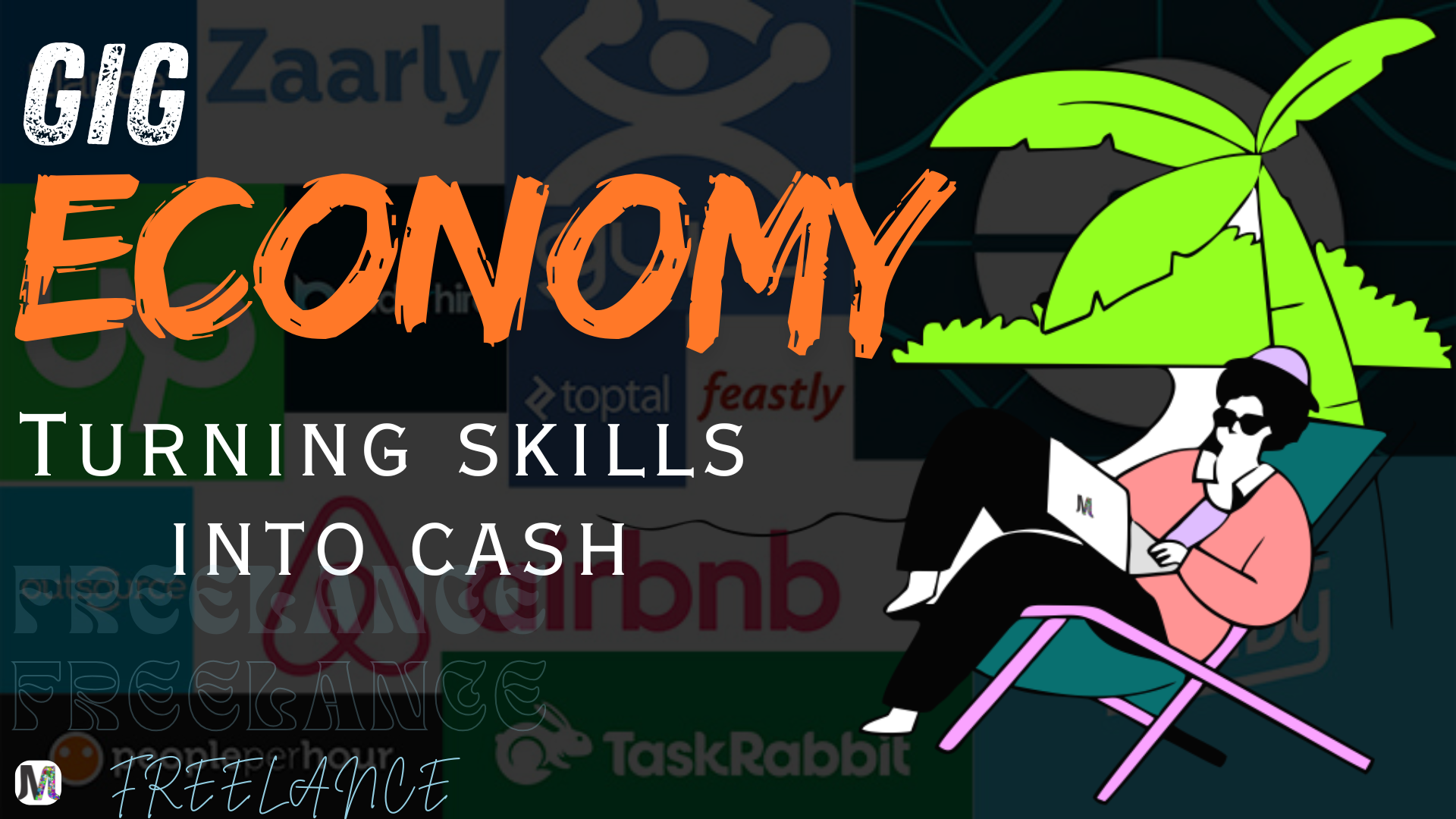Key Highlights
Financial freedom means having enough savings, investments, or income to live the way you want. You do not have to rely on a regular job.
To make a good financial plan, start with budgeting, paying off debt, and investing wisely for your future.
Achieving financial independence requires good habits. This includes living below your means and managing your spending.
Learning about financial health is important. Using tools like budgeting apps can help you make better choices with your money.
Protecting your wealth is key. Insurance and retirement planning can ensure stability and security in the long run.
Introduction
Imagine living a life where you can make choices without worrying about money. This is what financial independence means. To reach this, you need to build a strong financial plan that suits your goals and secures your future. Financial success is not only about having a lot of money. It’s also about being in control of your money. This control lowers stress and allows you to follow your passions. With hard work and smart choices, anyone can enjoy a life of financial freedom. The key is knowing where to begin.
10 Simple Strategies to Achieve Financial Freedom
Getting financial freedom may feel distant, but you can achieve it with easy strategies in your daily life. Start by making clear goals. After that, manage your debt wisely and keep track of your spending and investments. These simple steps can help you grow your savings and get ready for any surprises. Whether you are beginning with small steps or chasing large dreams, these strategies offer a good plan. Let’s look at how each step helps you reach financial independence.
1. Create a Comprehensive Budget
Budgeting is very important if you want to have financial freedom. It helps you keep track of how much you spend and save. To start a good budget, first look at your income and basic living expenses, along with your financial goals. Organize your expenses into two groups: needs, like rent and utilities, and wants, which are optional spending. Make sure to put some of your money into a savings account or save for investments.
After you make your budget, you should look at it regularly. Check your bank account statements every month. This practice helps you see if you need to change anything. It also makes sure you use every dollar wisely. By doing this, you can prevent overspending and save money for the future.
You can make saving simpler by setting up automatic transfers. Just arrange for regular moves of money from your checking bank account to your savings account. This way, you can work towards your financial goals without needing to make sudden choices. A well-made budget lets you see your finances clearly and helps you do well over time.
2. Eliminate High-Interest Debt First
Debt that has high interest rates can make it hard to manage your money. This is especially the case with credit card debt. First, make a list of all your consumer debt. Then, focus on paying off the debts that have the highest rates. By doing this, you can save a lot of money on interest as time goes on.
To pay off your debt more quickly, try the “snowball” method. Start by making the minimum payments on all your debts. Next, use any extra money to pay off your smallest debt first. Once you pay off one debt, take that same amount and put it towards the next one. This will help you feel more motivated as you tackle each debt.
It’s crucial to stay away from new debt while paying off what you already owe. Don’t use credit cards for things you don’t really need. Stick to your budget instead. Reducing high-interest loans can help you take charge of your money. This way, you’re not letting lenders have power over you.
3. Establish an Emergency Fund
An emergency fund is like a safety net for your money. It helps you pay for unexpected expenses like medical bills or sudden car repairs. Begin by saving at least $1,000. Once you reach that goal, try to save enough to cover three to six months of your living expenses.
You can make saving easier if you have your paycheck sent straight to a savings account. Keep this money separate from your regular checking account. This way, you will not feel the urge to spend it on things you want. Check your contributions often. This will help your emergency savings grow over time and meet your needs.
Also, be sure to get health insurance. It can help cover high healthcare costs. Without it, you could face a financial disaster. A good plan will let you deal with emergencies without worry. You won’t need to spend all your money or go into debt.
4. Maximize Your Income Potential
Increasing your earnings is important for reaching your financial success. You can make extra money by starting a side hustle. A side hustle could be freelancing, tutoring, or selling things online. These activities provide active income. They can help you achieve your financial goals quicker and get ready for your future.
One more way to gain passive income is to start different streams of it. You can invest in stocks that pay dividends or buy properties to rent. These options might need some time or money to get started, but they can give you good rewards over time with less work later.
Do not forget your main job. Look for promotions or talk about salary raises based on your skills. Join training workshops or earn certificates to increase your income in your career. Having different sources of income gives you more choices. It helps you stay strong during hard times and can lead you to financial freedom.
5. Invest Wisely
Making smart choices for your investments is key to having financial independence later. Start by spreading out your investments. You might look into the stock market, real estate, or index funds. Doing this can reduce risk and help your money grow steadily, even if the market isn’t stable.
If you are new to investing, start with small actions. Set aside some of your income each month to invest. Online brokers are great for beginners or anyone wanting to grow their money. You can also create automatic deposits for retirement savings, such as a 401(k) or a Roth IRA, to help you save more easily.
Don’t let trends or emotions decide your investments. It is important to learn and understand what to do. Follow financial advice from credible sources. Pay attention to how your investments are doing. By taking action regularly and thoughtfully, you will grow your wealth and feel more confident in managing your money.
6. Plan for Retirement Early
It’s always a good time to think about retirement. A good way to save is with a Roth IRA, which can help you feel safe when you stop working. You should also save using employer plans like a 401(k), especially if your job provides extra money for your savings.
If you start saving early, you can take advantage of compound interest. Saving often in your 30s or 40s helps you increase your wealth more than saving later, even if you put in less money. The savings rate is important, so try to save 15% of your income for retirement.
Look at your plan often. Change it if you need to so it fits your goals and deals with inflation. It’s a good idea to work with a financial advisor for advice that suits you. Planning ahead helps you feel safe about your future. It also brings you peace of mind, knowing you are prepared for life after work.
7. Protect Your Wealth with Insurance
Having complete insurance coverage helps protect you from money problems caused by unexpected events. It’s important to get life insurance premiums to support your family. You should also have health insurance to shield yourself from rising health care expenses.
Long-term options like disability insurance and umbrella policies give you extra protection. They help reduce your stress if you face an accident or a lawsuit. Check your policies each year. This way, you can make sure they fit your needs and lifestyle.
Do not believe that having too little coverage is safe. It can cause serious money issues fast. Protecting your money does not mean getting several insurance plans. Find a plan that fits your needs and goals. By taking action early, you can create your financial independence and keep your family safe later.
8. Live Below Your Means
Try to control the urge to spend a lot by choosing living expenses that are good for the planet. You can begin with a few simple steps. Write down what you buy and focus on what you need rather than what you want. This way, you can save enough money for the future.
Knowing your money limits helps you save. For instance, buying used things or renting instead of buying can help you spend less. This way, you can keep what matters. If you combine this idea with a good budget, you can be successful in the long term.
It’s not only about being very cheap. It’s about spending smartly. You should consider what helps you reach your goals while saving for future needs. When you spend less than you make, you build a safety net. This also provides stability when times are uncertain.
9. Educate Yourself on Financial Health
I want you to feel strong by learning more. Keeping up with financial news and trends can help you make smarter choices about your investments and savings. You can get good financial advice from trusted sources or even take beginner classes on basic money management.
Building a healthy lifestyle for your money means watching your accounts closely. It also means understanding your credit and taxes. By knowing these details, you can avoid making bad financial decisions and stay safe from scams.
Learn about useful ideas such as the value of money and compound interest. Knowing these things helps you become stronger with your finances. This can help you achieve your goals in a smarter way. You can do this without taking on more risk.
10. Give Back and Plan Estate Wisely
Helping others through charity improves life for all, including you. When you give, it creates a lasting impact. You can support a cause or offer help in your community. Giving back strengthens your ability to make a difference.
It’s important to keep your wealth safe and share it wisely. Good estate planning helps make sure that your nest egg and property go to the right people when you are not around anymore. You should work with experts to avoid any legal or tax issues.
Careful planning lets you create a good legacy and positively impact others. It’s essential to be generous but also safeguard your resources. When you find this balance, you can remain financially free.
Deep Dive into Key Financial Habits
Having good financial habits helps create a strong foundation for stability and success over time. It is important to understand the value of money. This knowledge aids in practicing basic money management. Doing this makes sure your resources work well with your goals.
Having two good habits can help you a lot. One is accepting multiple income streams to earn extra money. The other is improving your financial knowledge. By doing these things, you can reach your goals more easily and deal with challenges in a better way. Let’s take a closer look at these important habits.
Importance of Financial Literacy
Sorry, I need more text to rephrase. Please provide the content you want to simplify.
Benefits of Multiple Income Streams
Creating several ways to earn money can really help your financial stability. It can also make you feel more independent. Having different options for income, like a side hustle, investing in real estate, or earning passive income, lets you manage unexpected costs better. This way, you can save for an emergency fund and work towards your long-term financial goals. A strong financial plan comes from taking these actions. When you have more than one source of income, it gets easier to handle debt, living expenses, and health care costs. This can help you reach financial success.
Overcoming Common Financial Challenges
Facing money problems can be tough, but having a plan makes it easier. A key step is setting up an emergency fund. This fund should have enough savings for unexpected expenses, like car repairs or doctor visits. It’s important to manage credit card debt too. This can help you find financial success. Getting financial advice from a professional, like a financial planner, or using budgeting tools can help you understand your financial goals better. These simple steps give you the strength to tackle challenges. They create a path towards financial independence and the idea of financial freedom.
Dealing with Unexpected Expenses
Unplanned costs can really hurt your financial plans. This often happens with car repairs or medical emergencies. That’s why you should create an emergency fund. This fund should cover three to six months of living expenses. It acts as a safety net for money problems. By using basic money management skills, people can deal with these issues better. Setting up a savings account for unexpected costs is a smart idea. This helps reduce the need for credit cards and keeps debt low. A focus on financial planning is important. It can lead to financial success over time.
Managing Lifestyle Inflation
Avoiding lifestyle inflation is very important for achieving financial success and independence. When people make more money, they often spend more, too. This can lead to not saving enough and even getting into debt. By setting clear financial goals and following a budget, you can manage your spending better. This helps you save money for emergencies and future investments. Understanding the value of money helps you remove unnecessary costs. As a result, you can manage your wealth more effectively. This habit also opens up opportunities for passive income and promotes your financial growth.
Tools and Resources for Financial Planning
There are several tools available to assist you with your money plans. Budgeting apps help you keep track of your spending easily. They allow you to set financial goals and monitor your progress. For beginners, investment platforms let you explore the stock market or real estate. This can be helpful for building passive income. A financial advisor can offer you custom plans. These plans can support you in managing debt, such as credit card bills and student loans. They also help you work toward your idea of financial independence and success.
Best Budgeting Apps and Tools
Many budgeting apps and tools can help you manage your money well. Apps like Mint or YNAB can show you where your money goes. This helps you stay on the right track to reach your financial goals. These apps often connect to your bank account. They give real-time updates on your spending. They can also alert you about unexpected costs, helping to protect your emergency fund. With these tools, planning your finances gets easier. This makes it simpler to work towards financial independence and long-term success.
Investment Platforms for Beginners
Investing can seem tough for beginners. However, there are several easy platforms that make it simple. New investors often find apps for basic money management very useful. These apps allow you to start investing without spending much money. Robo-advisors give automated financial advice to help users. You can look into options in the stock market and real estate to earn passive income. These platforms usually help young adults who want financial independence. They offer tools to make investment strategies simpler and to help set goals. With the right steps, building a nest egg is possible.
Conclusion
Achieving financial independence takes time and effort. You should create a good financial plan to help you handle challenges. These challenges might include surprise costs or rising living expenses. A wise approach to manage your money, with both active income and passive income, will support you in reaching your financial goals. A strong emergency fund is also important for your peace of mind. Just follow these simple steps to gain control of your financial future. This way, you can have enough savings to face life’s challenges. Start today to get the financial freedom you desire.
Frequently Asked Questions
What does financial freedom really mean?
Financial freedom means having enough money to live well without always worrying about cash. It lets people make choices based on what they want, not just on what they can afford. This freedom allows them to follow their passions and build a secure future for themselves and their families.
How long does it typically take to achieve financial freedom?
Achieving financial freedom means different things for different people. It depends on how much money you make and how much money you save. Your lifestyle choices also play a big role. Usually, it can take 5 to 20 years of hard work and careful planning to reach this goal. However, it is important to keep making steady progress during this time.
Can financial freedom be achieved on a low income?
Yes, you can achieve financial freedom even if you don’t earn much money. It takes good budgeting and saving before you spend. Look for ways to earn some extra cash. By keeping your spending low and making smart investment choices, you can grow your wealth. This will help you break free from financial limits.
What are the first steps towards financial independence?
The first steps to being financially independent are making a budget that suits you, paying off high-interest debts, and starting an emergency fund. These actions help you handle your money better. They can also lead to steady growth and help you create wealth over time.








Leave a Reply